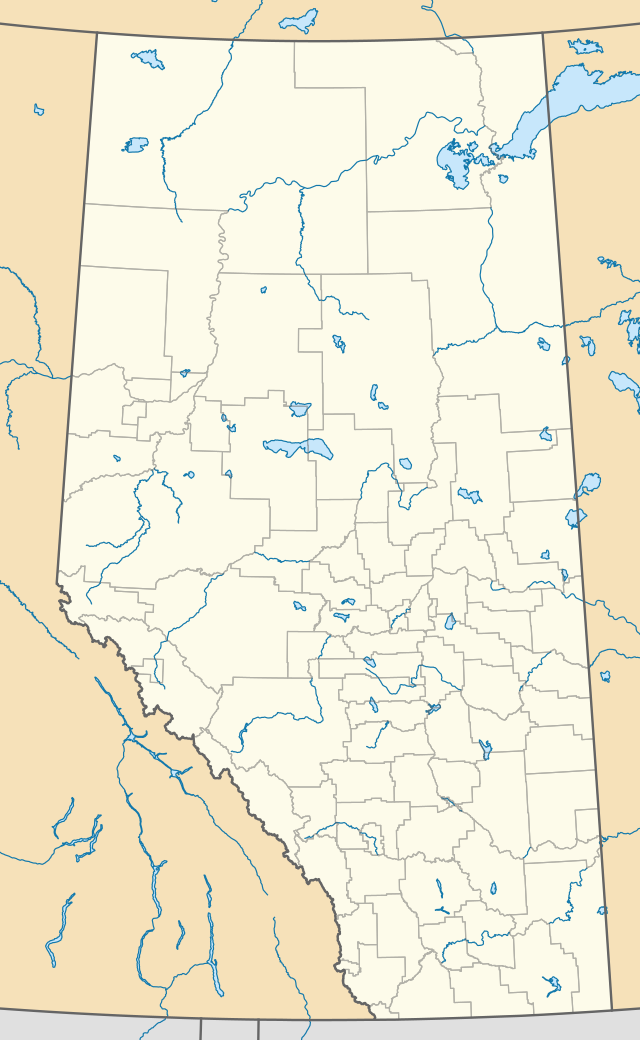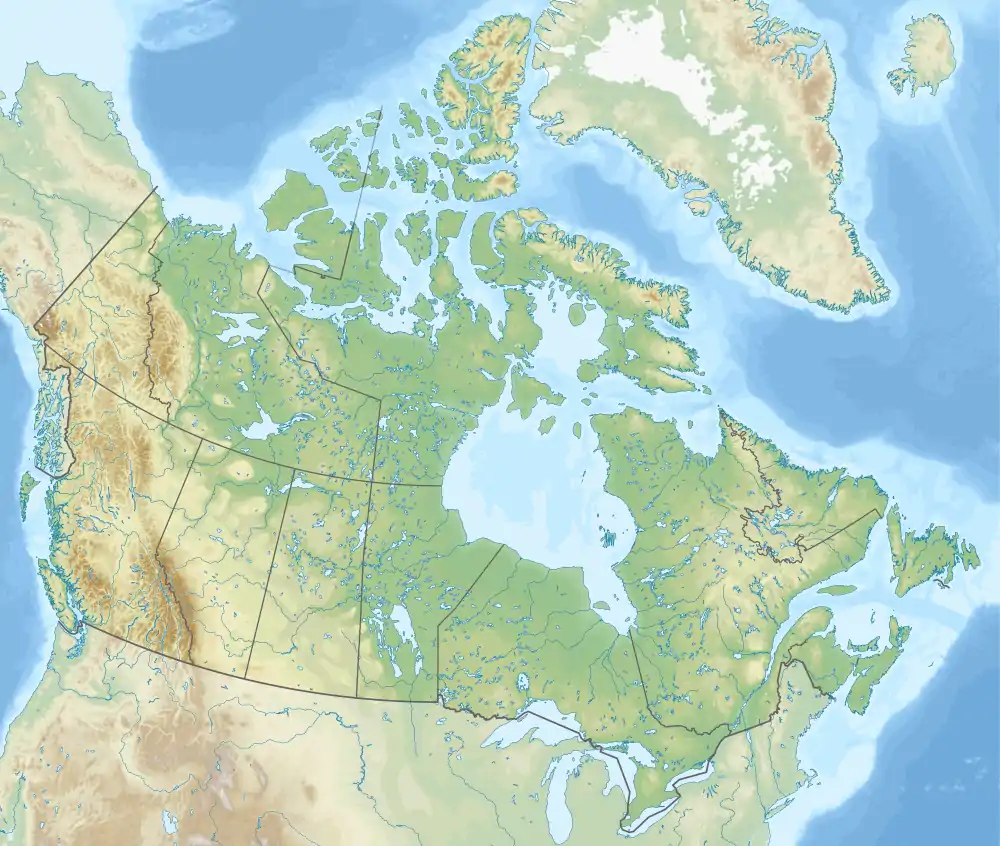Mount Henry MacLeod
Mount Henry MacLeod is a 3,315-meter-elevation summit located in Jasper National Park, in the Canadian Rockies of Alberta, Canada.[2]
| Mount Henry MacLeod | |
|---|---|
 Mt. Henry MacLeod from Maligne Lake | |
| Highest point | |
| Elevation | 3,315 m (10,876 ft) [1] |
| Prominence | 265 m (869 ft) [1] |
| Parent peak | Mount Brazeau (3,500+ m)[1] |
| Isolation | 2.21 km (1.37 mi) [1] |
| Coordinates | 52°31′46″N 117°21′02″W [1] |
| Geography | |
 Mount Henry MacLeod Location of Mount Noyes in Alberta  Mount Henry MacLeod Mount Henry MacLeod (Canada) | |
| Location | Jasper National Park Alberta, Canada |
| Parent range | Queen Elizabeth Ranges[1] Canadian Rockies |
| Topo map | NTS 83 C/11 |
| Geology | |
| Age of rock | Cambrian |
| Type of rock | Sedimentary |
Mount Henry MacLeod was named for Henry A. MacLeod, a Canadian Pacific Railroad surveyor who investigated a potential route in the Maligne Valley in 1875.[3]
Geology
Like other mountains in Banff Park, the mountain is composed of sedimentary rock laid down during the Precambrian to Jurassic periods.[4] Formed in shallow seas, this sedimentary rock was pushed east and over the top of younger rock during the Laramide orogeny.[5]
Climate
Based on the Köppen climate classification, Henry MacLeod is located in a subarctic climate zone with cold, snowy winters, and mild summers.[6] Temperatures can drop below -20 °C with wind chill factors below -30 °C.
References
- "Henry MacLeod, Alberta". Peakbagger.com. Retrieved 2021-01-21.
- "Mount Henry MacLeod". Geographical Names Data Base. Natural Resources Canada.
- Place-names of Alberta. Ottawa: Geographic Board of Canada. 1928. p. 64.
- Belyea, Helen R. (1960). The Story of the Mountains in Banff National Park (PDF). parkscanadahistory.com (Report). Ottawa: Geological Survey of Canada. Archived (PDF) from the original on 2015-10-02. Retrieved 2019-09-13.
- Gadd, Ben (2008). Geology of the Rocky Mountains and Columbias.
- Peel, M. C.; Finlayson, B. L.; McMahon, T. A. (2007). "Updated world map of the Köppen−Geiger climate classification". Hydrol. Earth Syst. Sci. 11: 1633–1644. ISSN 1027-5606.